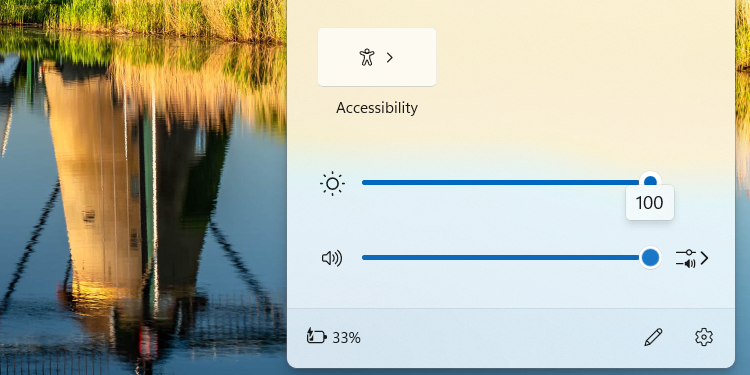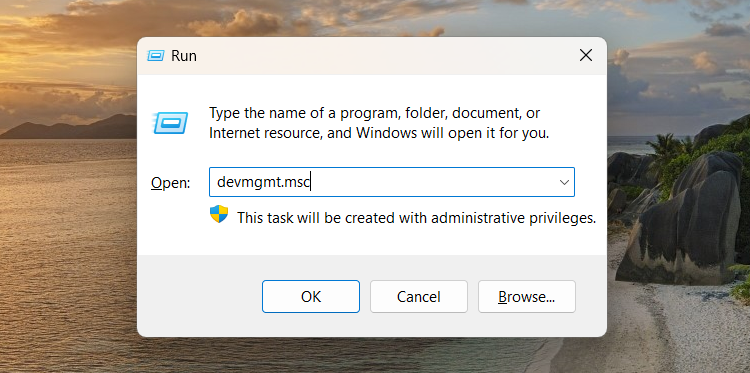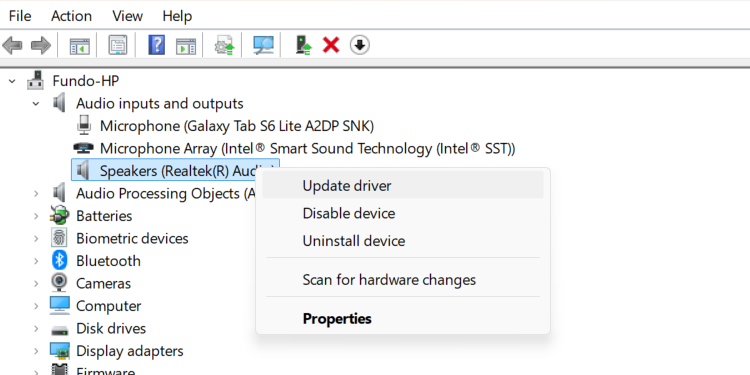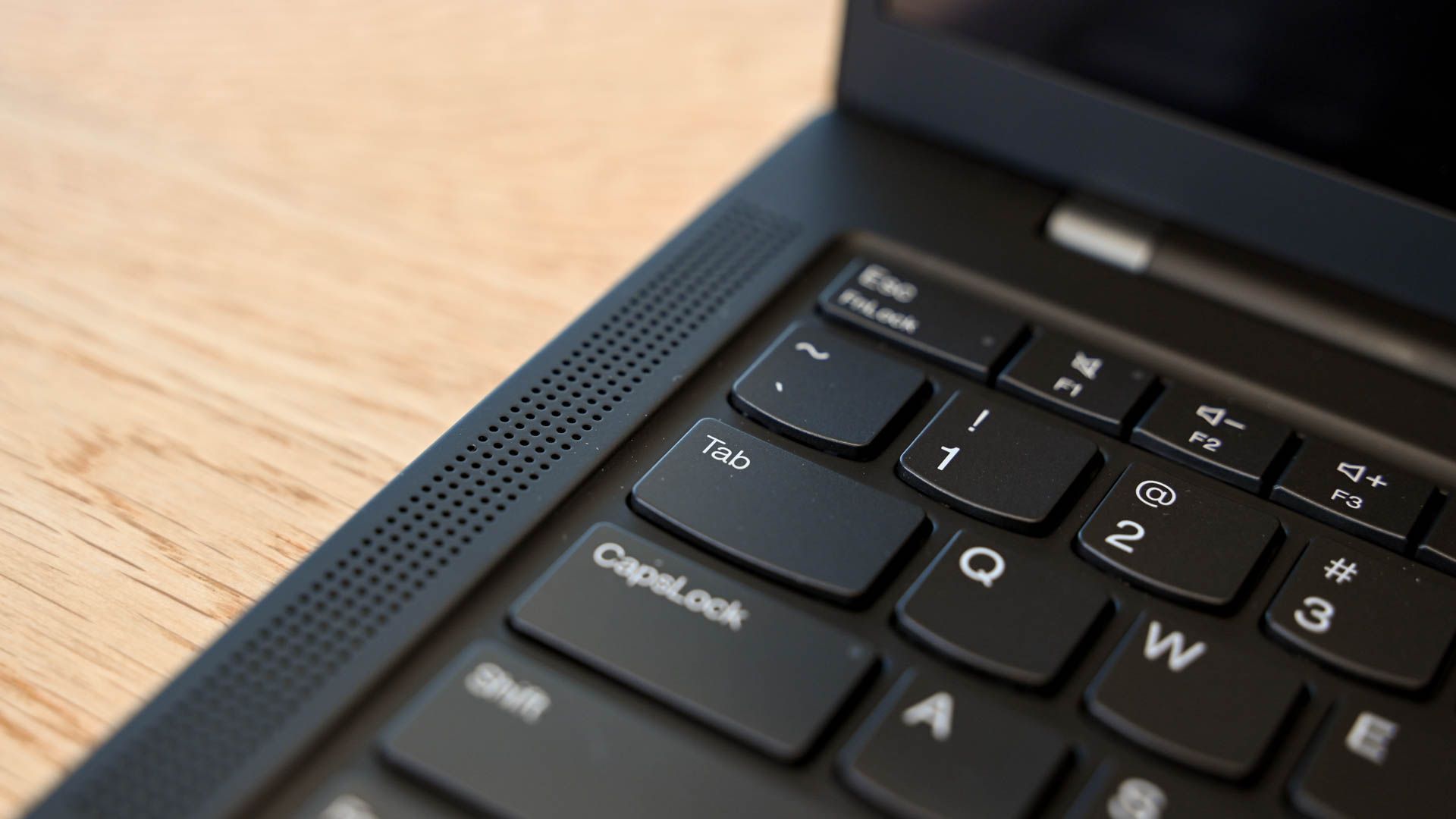It can be frustrating when the audio from your laptop’s speakers is distorted. But unless there’s physical damage, it’s usually fixable. Let’s look at the common causes and their solutions to get you back to hearing crystal-clear audio again.
1 The Volume Is Too High
If you blast music on your laptop speakers to the fullest, chances are you’re exceeding the maximum amplitude they can handle. This is probably why you’re hearing all that clipping and crackling. That’s because these small, low-powered speakers aren’t designed to handle high sound output.
Try turning down the volume on your laptop and see if that fixes the problem. If you want to turn the audio on your laptop to the max, consider buying high-quality external speakers.
2 Audio “Enhancement” Software
Enabling audio enhancements can improve the sound quality of your laptop speakers. They do this by modifying the audio signal using various filters and effects. You can use them to, for instance, boost bass and treble, reduce background noise, normalize volume levels, or simulate surround sound.
However, when enhancing the audio, this software can sometimes distort it, especially if you haven’t configured it properly. It could also be that it’s pushing the laptop speakers beyond their limits, causing the unwanted sound artifacts you’re hearing.
You can try to configure the audio enhancement software properly, or you can simply disable it if you don’t know how to tweak the settings.
3 Outdated Drivers
Audio drivers need to be optimized and bug-free to give you the best sound experience. If they are outdated, it could be why your laptop speakers don’t sound crystal clear.
Driver issues are not common on Mac computers because the audio drivers are integrated into the operating system. Once you update your macOS version, the drivers will be automatically updated as well.
On Windows, though, you might need to update them manually to get the latest version. To do this, press Windows+I to open Windows Run, type devmgmt.msc in the text box, and click the “OK” button.
Right-click your laptop’s built-in speakers and select “Update Driver” in the menu.
From there, choose the “Search Automatically for Drivers” option. Windows will search for the latest audio driver and install it.
If the issues persist, it could be a malfunctioning audio driver, which you can fix by reinstalling it.
4 Conflicting Software
Some software on your laptop can interfere with the audio processing of others, leading to glitches, stuttering, or crackling sounds when you play something. This usually happens if they’re competing for the same resources.
To fix this, close any software that is also using the speakers to avoid conflicts. For me, this usually happens if I play a YouTube video, forget it’s playing, and then minimize the tab. If I open VLC or Spotify and play something, the audio sounds distorted until I close the YouTube tab.
5 CPU Overload
The audio quality on your laptop can also be affected if the processor is working too hard. The most common causes include:
- Running multiple demanding apps: Identify resource-intensive applications using Activity Monitor on Mac or the Task Manager on Windows and end them to reduce the load on the CPU.
- Background processes: Consider changing the startup programs on Mac or disabling startup programs on Windows so that these apps don’t put unnecessary strain on the CPU.
- Malware infections: You can use the built-in antivirus for your operating system (e.g., Microsoft Defender on Windows or XProtect on Mac) to scan for and remove viruses.
- Overheating: Ensure your laptop is on a hard, flat surface and getting enough airflow. Also, clean vents and disable overclocking if you have it on.
- Low RAM: Increase the RAM capacity to ensure that the system has enough memory resources to run the audio processes—8GB of RAM is the bare minimum these days.
6 Background Noise Interference
When other signals mix with the audio output on your laptop, you can experience all manner of distortions and noise. The biggest source of this is other electronic devices that cause electromagnetic interference (EMI), such as phones, Wi-Fi routers, or unshielded cables.
Here are the solutions to reduce or eliminate EMI:
- Move the laptop or the other devices away from each other.
- Disable Bluetooth and Wi-Fi for the devices close by when not in use.
- Use high-quality shielded cables if possible.
- Ensure your laptop and any other connected devices are properly grounded.
Hearing EM interference on laptop speakers is pretty rare these days, but it can still happen!
7 Damaged Speakers
If your laptop speakers are damaged, you can experience crackling, static, unbalanced, or muffled audio. Types of damage that can occur include broken internal components (usually from dropping the laptop), tears or holes in the cone, blown speakers, and loose connections.
The best course of action would be to consult a professional technician to diagnose the problem and ensure fixes are done correctly.
Getting to the root cause is the best way to get the distortion under control. Whether it’s adjusting settings, updating drivers, or addressing hardware concerns, there’s usually a solution available to get your sound working properly again.









